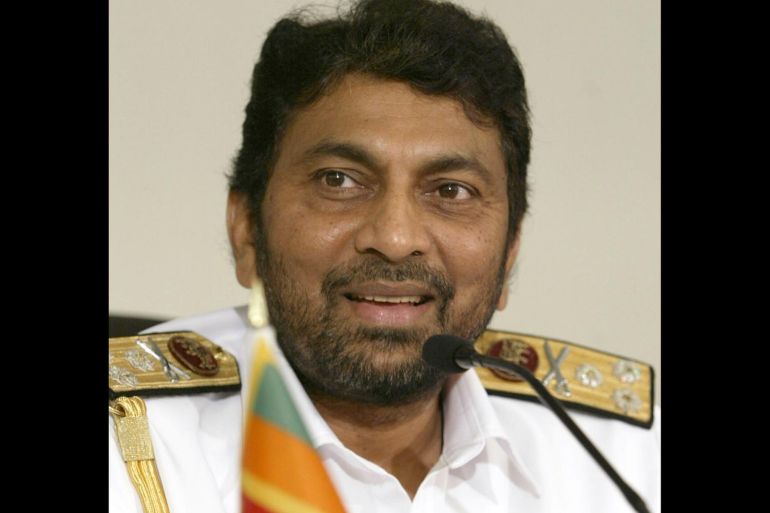Sri Lanka drops charges against ex-navy chief over 11 killings
Probe against Admiral Wasantha Karannagoda was part of a case that cast a spotlight on extrajudicial killings during the nation’s 37-year ethnic war.

Sri Lankan authorities have dropped charges, including conspiracy to murder, against a former navy chief linked to 11 killings that drew international condemnation, the country’s attorney general has announced.
The investigation against Admiral Wasantha Karannagoda was part of a case that cast a spotlight on extrajudicial killings during Sri Lanka’s 37-year ethnic war that ended in 2009.
Keep reading
list of 4 itemsWhy Sri Lankan Tamil refugees in India attempted mass suicide
Sri Lankan prison minister resigns after alleged inmate threats
Sri Lanka’s political detainees tortured in custody: Rights group
Attorney General Sanjay Rajaratnam on Wednesday told the Court of Appeal that the state will not pursue charges against Karannagoda, who was first indicted in 2019.
A court official told AFP news agency that a lower court would soon discharge Karannagoda, who is one of 14 people accused of abducting the teenaged children of wealthy families in 2008 and 2009 and killing them after extorting money.
Four charges had been laid against him, including conspiracy to murder, which carries the death penalty.
Rights watchdog Amnesty International urged Sri Lankan authorities to explain why they dropped the case.
The killing of the 11 youths was raised at the UN Human Rights Council, which called for independent investigations into atrocities during the separatist war.
Police told a court in 2019 that the 11 victims were killed while in the illegal custody of the navy, although their bodies have never been found.
Investigators believe the true number of victims from the abductions and killings to be at least three times higher.
Police said the victims were not linked to ethnic Tamil separatist rebels and were kidnapped purely to extort money from families. Some were killed even after cash was handed over.
Military figures have been widely accused of extrajudicial killings during the war.
The final days of the offensive against the Tamils were marked by serious abuses, according to rights groups.
A UN panel has said 40,000 civilians may have been killed in the final stages of the conflict.